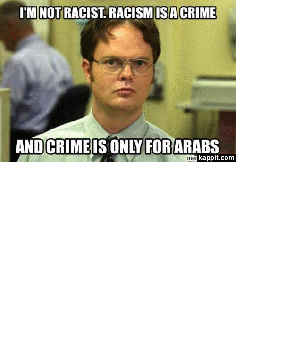I have always had this belief that this world was not made to be split into countries and regions, so I find it quite hard to understand why there is so much discrimination all around us.
The article “Othering and Belonging” has brought my attention to the numerous situations in which I witness othering. Given the fact that othering includes refining according to religion, sex, race, ethnicity, socioeconomic status (class), disability, sexual orientation, and skin tone; it is evidently present in our day-to-day lives.
After reading this article I do not know why, but I decided to google the following “Arab memes,” since behind every joke lies a truth. I was shocked. I was aware that there were memes about Arabs, but I did not realize how we were portrayed. Having seen these, I thought to myself if this is what the world thinks of when the word Arab comes up, then we are “othered.”

These are just a few of the appropriate memes that drew my attention.
Moreover, having an interest in films, I realized that a huge part of othering, belongingness, and segregation has been transferred to us through the cinema. These films continuously portray different races or religions in a certain way that builds a preformed image in the viewer’s mind. Which brings me to the next relation that I made in my mind as I kept on reading, Orientalism. Orientalism is an approach that involves imagining, highlighting, exaggerating and falsifying the differences in Middle Eastern citizens and cultures in comparison to those of the United States. For instance, films such as The Sheik and The Mummy construct the negative typecasts of Arabs. In the past few years, how many times have you seen the bad guy or the terrorist the Arab?
The article provides a few solutions to othering; however, I find it hard for the world to start accepting differences since we have been influenced by our surroundings to be discriminative to anyone who is different.

September 24, 2019 at 6:30 am
thanks for this Nada, and for the cartoon and memes – would have been great to slow down the memes a bit 🙂 because it’s hard to read all of them that fast. Which GIF maker did you use?
LikeLike